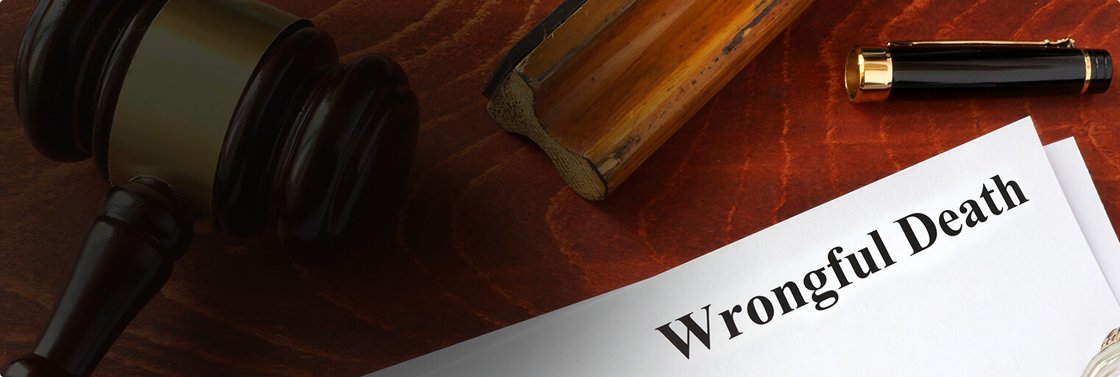Wrongful Death Claim
What is Wrongful Death?
Death is always a tragedy—though sometimes the death is even more of a tragedy if it occurred because someone else was careless or criminal. That's what they call wrongful death.
Wrongful death is when an individual dies as a result of the careless, reckless, or intentional conduct of another. It can be caused by a car accident, medical malpractice, faulty product, or industrial accident.

Wrongful Death in Canada
Wrongful death in Canada is not only a legal theory—It is a way for loved ones to pursue justice and financial compensation for the loss they suffer. As opposed to a criminal offense (which can include charges like manslaughter or criminal negligence causing death), a wrongful death is a civil lawsuit. It provides for surviving kin to be reimbursed for their loss.
In civil law, you don't have to establish guilt "beyond a reasonable doubt" as you would have to in a criminal trial. You just need to establish the case on a balance of probabilities—i.e., more probably than not that the defendant was to blame
Common Reasons of Wrongful Death in Canada
Wrongful death cases may be due to many reasons such as:
- Motor vehicle crash (one of the leading causes of death in Canada, resulting in 1,768 fatalities in 2021, according to Transport Canada)
- Medical malpractice
- Industrial accidents (primarily construction and oil & gas work)
- Defective products
- Slip, trip, and falls
- Drowning and recreations
Definition of Law across Canadian Provinces
Each of the Canadian provinces has its own law of claims for wrongful death. Here is how some of the provinces define and govern wrongful death:
- Ontario: Family Law Act
- British Columbia: Family Compensation Act
- Alberta: Fatal Accidents Act
- Saskatchewan: The Fatal Accidents Act
These statues usually provide that the family of the deceased is entitled to bring suit for death by a “wrongful act, neglect, or default” and that the deceased would have had a claim had he/she recovered from the injury.
Who Can Pursue a Wrongful Death Suit?
Canadian claims for wrongful death usually are confined to immediate relatives. The provinces have varying eligibilities but generally include:
- Spouse/common-law partner
- Children (born or adopted)
- Parents
- Sometimes parents or grandparents (especially if economically dependent)
Dependency on question. You would probably have standing if emotionally or financially reliant on the decedent.
What Can Be Recovered?
Wrongful death damages in such cases are not a function of cashing a check—more a question of acknowledging the financial, emotional, and practical loss that a family has incurred. That is what you can generally recover:
- Loss of earnings the decedent would have earned
- Loss of companionship, care, and guidance
- Burial and funeral costs
- Loss of household services
- Mental distress and sorrow (in some provinces)
In Ontario, for example, courts have awarded $25,000–$125,000 for loss of companionship alone, depending on the case.
Civil vs. Criminal Cases
The important thing to keep in mind here is that wrongful death claims are distinct from any criminal proceeding. Even if a person is not indicted, or not convicted, in criminal court, the family can still initiate a civil lawsuit.
This is then followed by the Eric Garner case in America, where his family was compensated with $5.9 million by the City of New York, even though the officer wasn’t charged criminal offense.
Time to File
All provinces have strict deadlines:
- Ontario & B.C.: 2 years from date of death
- Alberta: 2 years under the Limitations Act
- Nova Scotia: 1 year, but may be extended in certain circumstances
Don’t delay—missing the deadline can take away your right to sue permanently.
How to file a Wrongful Death Claim in Canada
This is how the process typically occurs:
1. Check Eligibility
Make sure you have a right to sue (spouse, child, parent, etc.). If unsure, seek a lawyer’s advice.
2. Hire a Lawyer
These are complex cases. A skilled wrongful death or personal injury lawyer can build a solid case and represent you.
3. Collect Evidence
Meet with your lawyer to collect:
- Death certificate
- Medical and coroner reports
- Police or accident report
- Witness statements
- Receipts (e.g. funeral expenses)
- Evidence of dependence (tax returns, bank statements)
4. Estimate Damages
Your lawyer will estimate a reasonable settlement amount based on:
- Lost wages/lost future earnings
- Services rendered by the deceased
- Emotional and financial support
5. File the Claim
That is, you submit a Statement of Claim in provincial civil court, stating:
- What occurred
- Who’s at fault
- What damages you’re seeking
6. Serve the Defendant
The defendant (the individual or group responsible) must be served.
7. Negotiation or Mediation
Most of the time, there will not be a trial. Both sides’ attorneys will try to negotiate a settlement.
8. Go to Trial (If Necessary)
If the settlement does not work out, the case is litigated in civil court where a judge—and sometimes a jury—decide on the case.
9. Get Compensation
Upon winning the case, compensation is received and paid by eligible family members.
You’re Not Alone
It is never easy to die, and money cannot bring them back. However, a wrongful death claim can ease the financial burden and a measure of justice.
If you believe your loved one might have died unnecessarily, consult an attorney immediately. Most of them offer free initial consultations, and most operate on a contingency fee basis—i.e., if you win, only then do they get paid.
